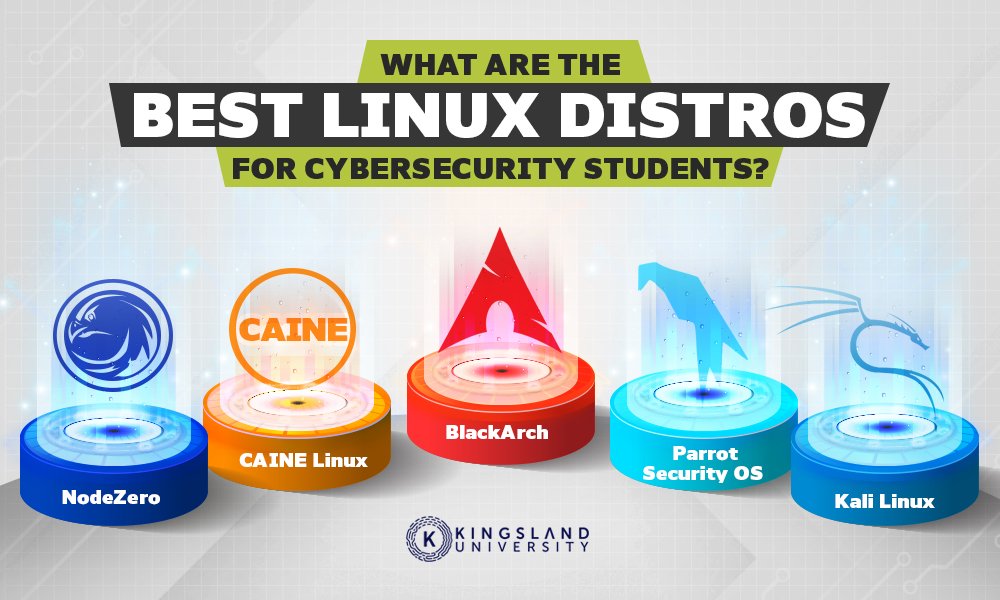Best Linux Distro: A Comprehensive Guide to Finding the Perfect Fit
Linux has been making waves in the tech world for years, offering freedom, customization, and security. Whether you’re new to Linux or a seasoned user, one question always lingers: What is the best Linux distro? Well, that’s what we’re here to help with. In this guide, we’ll dive deep into the world of Linux distributions (distros) to find the best Linux distro for every kind of user.
We’ve covered everyone from gamers to programmers to privacy enthusiasts to casual users. Let’s examine the options to choose the best Linux distro for your needs.
What Is a Linux Distro?
Before we dive into the best Linux distro, it’s vital to understand what a Linux distribution is. Linux, in its core form, is just a kernel. The kernel is the backbone of the operating system, managing the system’s software resources.
However, to be usable, the kernel needs a set of applications and tools to create a fully functional operating system. This combination of the Linux kernel with other components like package managers, desktop environments, and system utilities makes a Linux distribution or distro.
Hundreds of Linux distros are out there, each tailored for different users. But how do you choose the best Linux distro for you?
What Makes the Best Linux Distro?
Determining the best Linux distro depends on several factors:
- User Experience: Are you looking for a user-friendly distro with minimal setup, or are you more tech-savvy and want to customize everything from scratch?
- Purpose: Do you use it for programming, gaming, or as a daily driver?
- System Requirements: How resource-heavy is the distro? Will it run smoothly on your hardware?
- Community Support: Some distros have more significant, active communities than others, providing better support and more tutorials.
Considering these factors, let’s list some of the top contenders for the title of best Linux distro.
Best Linux Distro for Beginners
If you’re new to Linux, you might be overwhelmed by the technical jargon and endless choices. But don’t worry; distros are designed to help you get into the world of Linux. The best Linux distro for beginners offers an intuitive interface and easy setup.
- Ubuntu
Ubuntu is widely recognized as one of the best Linux distros for beginners. It’s by Canonical, which ensures long-term support and regular updates. Ubuntu’s interface, GNOME, is clean and modern, making it an excellent choice for those transitioning from Windows to macOS.
- Why Ubuntu?
- User-friendly
- Large community support
- Easy to install
- It comes pre-loaded with essential software
- Best For: Casual users, beginners, and anyone looking for a hassle-free experience.
- Linux Mint
Another top pick for beginners is Linux Mint. This distro offers a more traditional desktop environment (Cinnamon) similar to Windows, making it a comfortable transition for former Windows users. It’s lightweight, fast, and customizable.
- Why Linux Mint?
- Windows-like interface
- Minimal system requirements
- Great for older hardware
- It comes with plenty of pre-installed applications
- Best For: Windows users switching to Linux, older computers, or users who want simplicity.
Best Linux Distro for Programming
Thanks to its flexibility and robust command-line tools, Linux is often the platform of choice for programmers in development. So, what’s the best Linux distro for programming?
- Fedora
Fedora stands out as one of the best Linux distros for developers. It is known for its cutting-edge software and features. FedoraFedora’sitories are constantly updated with the latest development tools and libraries, a massive plus for programmers.
- Why Fedora?
- Access to the latest features
- Supported by Red Hat
- Great for software development and testing environments
- Best For Developers who need the latest tools and features and software engineers working on enterprise systems.
- Arch Linux
Arch Linux is a solid choice for more advanced users who want complete control over their system. It is a rolling release, meaning it’s up to date. It doesn’t have a graphical installer or pre-installed software, but that’s where its power lies—you have complete control over what goes into your system.
- Why Arch Linux?
- Maximum customization
- Lightweight and fast
- Access to the Arch User Repository (AUR) for additional packages
- Best For: Experienced developers who want a highly customizable system.
Best Linux Distro for Privacy and Security
If your primary concern is privacy and security, Linux offers several distros tailored to these needs. The best Linux distro for security-minded individuals focuses on encrypting data, securing communications, and protecting your digital footprint.
- Tails
Tails is a privacy-focused Linux distro design used as a live system. It leaves no trace of your computer activity and routes all internet traffic through the Tor network, making it ideal for privacy enthusiasts.
- Why Tails?
- Runs from a USB stick
- Ensures complete anonymity
- All internet traffic is routed through the Tor
- Best For: Privacy-conscious individuals, journalists, and whistleblowers.
- Qubes OS
Qubes OS is an innovative, security-focused Linux distro that isolates different tasks into separate virtual machines. This ensures that a security breach in one doesn’t affect the others; it’s one of the most secure distros out there.
- Why Qubes OS?
- Compartmentalizes tasks for security
- Built with high-level security in mind
- Backed by privacy advocates like Edward Snowden
- Best For: Security-conscious users and developers working with sensitive data.
Best Linux Distro for Gaming
Linux gaming has come a long way, and thanks to tools like Proton and Steam Play, many Windows games now run smoothly on Linux. What’s the best Linux distro for gaming?
- Pop!_OS
Pop!_OS, developed by System76, is one of the best Linux distros for gaming. It comes with built-in support for gaming hardware and is optimized for performance, focusing on ease of use; it’s also an excellent choice for casual users who want a gaming machine.
- Why Pop!_OS?
- Optimized for gaming
- Built-in support for Nvidia and AMD GPUs
- Lightweight and fast
- Best For: Gamers, multimedia users, and anyone looking for an all-in-one distro.
- Manjaro
Manjaro is another excellent choice for gaming, particularly for users who want the power of Arch Linux but with a more user-friendly experience. Manjaro comes pre-loaded with essential software and drivers, making it an ideal gaming platform.
- Why Manjaro?
- It is based on Arch Linux, but it is easier to use
- Pre-installed drivers for gaming
- Rolling release for up-to-date software
- Best For: Gamers who want a customizable, high-performance system.
Best Linux Distro for Older Hardware
Linux is well-known for running on older hardware, and if you have an old computer collecting, there’s a best Linux distro for that, too!
- Lubuntu
Lubuntu is a lightweight version of Ubuntu that uses the LXQt desktop environment. It’s designed to be fast and efficient, making it perfect for older machines.
- Why Lubuntu?
- Lightweight and fast
- Minimal system requirements
- Great for older computers
- Best For: Reviving old laptops and desktops with minimal system resources.
- Puppy Linux
Puppy Linux is another lightweight Linux distro that’s incredibly small but powerful. It runs entirely in RAM, meaning it’s blazing fast, even on computers with low specs.
- Why Puppy Linux?
- Super lightweight
- Runs in RAM for fast performance
- Easy to install on older hardware
- Best For: Older hardware, minimalists, and users who need a lightweight system.
Comparison Table of the Best Linux Distros
DistroBest ForKey Features
Ubuntu Beginners Easy to use, ample community support
Fedora Developers Cutting-edge features, Red Hat-backed
Tails Privacy enthusiasts Tor support, live USB system
Pop!_OS Gamers Optimized for gaming, GPU support
Lubuntu Older hardware Lightweight, fast, low system requirements
Conclusion: Which Is the Best Linux Distro for You? There’s no one-size-fits-all answer to the question of the best Linux distro. The right choice for you depends on your needs and preferences. You’re a beginner looking for something easy to use like Ubuntu, a developer needing the latest tools like Fedora, or a privacy-conscious user who needs Taithere’sre’s a perfect distro out there for every everyoLinux’sux’s flexibility, customization, and security make it one of the most versatile operating systems on the planet. So go ahead, try a few, and find the best Linux distro for your journey into the open-source world!












Post Comment